
The Prolific Hub Podcast
The Prolific Hub Podcast is a digital archive & celebration of all things creativity, purpose and alignment.
The Prolific Hub Podcast
Transforming Dissatisfaction & Disconnection into Creative Fuel | Ep. 47
What if dissatisfaction or disconnection could fuel your creativity and entrepreneurial spirit? Join us as we unpack the complexities of dissatisfaction and disconnection. We'll explore how today’s job market and skyrocketing living costs may sometimes push people to seek new avenues for autonomy and fulfillment, all while emphasizing the crucial role of understanding your personal "why." Whether it's reclaiming your time, achieving flexibility, or aligning more closely with your goals, there is a maze of possibility that may arise from a simple feeling of discontent, whether that be a new hobby, creative outlet, or venturing into entrepreneurship.
This episode will also touch on societal issues like hyper-individualism and the essential role of community. From my own experiences with toxic leadership to the empowering process of building a supportive team, I’ll share personal anecdotes and actionable insights. By the end, you'll feel inspired to embrace your own vision, stay connected to your "why," and take meaningful steps toward your creative or entrepreneurial dreams.
Resources:
- Lyvonne's Reel
- Listen to The Sacred Synergy of Sensuality, Spirituality & Creativity ft. Lyvonne Briggs here!
- Myliek's Post (Slide 2)
Watch this episode on YouTube!
Theme Music:
She No Dull Beat by Nana Kwabena
Festivities in Belize by RAGE Productions
Enjoy the episode?
- Share it with friends!
- Send a voice note or text!
- Rate & review the podcast!
- Support the show with a Recurring Gift!
Follow the @theprolifichubpod on your favorite SM platforms!
Watch full interviews here on YouTube!
Join me over on Substack!
Check out my favorite brands and snag a discount!
Grab a guided journal here!
Are you a creative, solopreneur or entrepreneur who’d like to be featured on The Prolific Hub Podcast? Let me know here!
Hosted by Buzzsprout. See the Buzzsprout - Privacy Policy here.
Hey friend, welcome back to the show. I hope you're doing well. Thank you so much for being here, for tuning into this episode, for continuing to listen and support the show and for sharing it with your network. Thank you so much for leaving reviews, for rating the show that's so exciting and for everyone who's had a chance to subscribe to the YouTube channel. Thank you so much. We're still very tiny, but we're growing, so if you haven't had a chance to subscribe yet, please head on over to YouTube and hit that subscribe button so that you can get the visuals for the podcast.
Speaker 1:Okay, so for today's episode, I wanted to talk on something, a theme that's kind of been coming up that I've seen in a couple places online. I saw a post recently that got me thinking about my why and knowing my why and remembering my why when it comes to the life that I'm trying to create, when it comes to my consulting work and the business that I am aiming to grow, and when it comes to my consulting work and the business that I am aiming to grow, and when it comes to my creative outlets and creative projects from this podcast to other projects that are in the works and I wanted to talk about that a little bit. So one of the posts I saw and I'll link it in the show notes centered around this idea of dissatisfaction and how that correlates with businesses. So specifically the post said the answer to the dissatisfaction in your life isn't always quote unquote starting a business, and that got me thinking. I think on the one hand that's absolutely true and that's well-intended advice, and I think in many circumstances that actually really does apply to a lot of people. The other side of that that I also think about is how dissatisfaction can oftentimes spark daydreaming or dreaming or creativity in other realms. So sometimes out of dissatisfaction, we dream up new worlds for ourselves and new lives for ourselves, and sometimes the only way to achieve that or get there is by pursuing your dream, what you're interested in and what you want to do to create the kind of life that you want.
Speaker 1:We're living in an era now where the job market is very tough. People are not necessarily always getting paid what they deserve. People are not getting paid what it takes to live, especially in high-cost cities, but there are a lot of people in more rural areas who are also struggling and experiencing poverty in the same way that many people in high cost cities who can't make ends meet are also struggling. Like the dollar is not going as far as it used to, for a lot of people, everything's more expensive, the costs are continuing to rise, and that's I personally think and agree with all of the folks who recognize that this is largely driven by greed and the desire for greedy people to earn more profit while the rest of us struggle. That's a conversation for another day.
Speaker 1:I think when you reach a level of dissatisfaction and burnout with the way that you have been doing things, sometimes the only thing you can do is really think about a way to move beyond that and the steps that you can take to create the life that you desire. And for some people that means pouring into a creative outlet or a business idea or a new project that might allow them the ability to reclaim more of their time and the ability to not feel so sucked dry by other external circumstances or maybe a work environment that's not supporting them in the many ways that they need to be supported. So when I saw that quote, it got me thinking about my why and maybe the whys for many other people as well, sometimes in maybe our traditional roles like, depending on what that role is, it might demand so much of our time and our energy that we don't have a lot of time or energy left to pour into ourselves, to pour into our families, to spend time with them, to do the things that we want to do, to see the parts of the world that we want to see. We might not have that flexibility and for a lot of people, creating their own work structure that feels more in alignment allows them greater opportunity to have that flexibility and to have that control over their time and to feel accountable just to themselves, like they have some sense of autonomy that in a lot of cases like outside of doing that they don't feel that they have. And I think that's true for many people maybe not all people, I know it's true for me as well, and I think that's something to consider and to think about Now.
Speaker 1:This absolutely will not apply to everyone. There are plenty of people who are completely satisfied with their life, but they still maybe are interested in more and curious about doing more. So maybe their ideas for creating a business isn't fueled or driven by dissatisfaction. But I do feel like dissatisfaction can sometimes spark ingenuity and spark creativity. It can sometimes allow us to sink more deeply into ourselves to go into the void, if you will and really search for meaning and purpose and what feels more aligned. And sometimes we emerge out of that with a brilliant new idea or a creative new idea that might allow us some more freedom and ability to reclaim our time.
Speaker 1:And I know this may sound like a very idealistic view of starting a business or entrepreneurship. We know, we know from maybe what we've heard on the episodes of this show or other shows, or from the entrepreneurs you know in your life. If you are one yourself, you know that it's not all just glorified. There is so much grind that goes into getting your business, your idea, your vision off the ground and it takes time to get to a place where maybe that sort of freedom and flexibility feels more possible. It's not always immediate and sometimes the internet can make it seem and feel like it is immediate. It's something that happens right away, but we know that that's not true.
Speaker 1:However, for some folks there's a huge difference between grinding yourself to the ground for someone else or another business and not feeling like you're getting much in return, especially if what you're earning is still not helping you to make ends meet and do what you need to do. Some people would rather redirect that energy into their own thing and give themselves a shot and bet on themselves to try something new, and I don't think there's anything wrong with that. I think wanting to take the entrepreneurial journey is definitely not for the faint of heart, and it helps to have an excellent support system in place, because there are highs and there are lows, like it ebbs and it flows for sure, and it flows for sure, and I think it's very easy to jump into it with excitement until reality hits, until bills hit, until maybe you're taking on business debt to be able to make that vision possible, like whether you're using business credit to build your vision or business loans, both of which ultimately need to be paid back, things like that. So it's not for the faint of heart. However, sometimes I do believe that dissatisfaction can sometimes fuel a vision that we may not have had before, or maybe something we've thought about, that we've decided we want to just pour into and give it a shot and give it a chance and see what happens.
Speaker 1:So I saw that post and it made me think. It made me think a lot about my why and maybe the why for other people as well, and trusting yourself to know the difference, like trusting your intuition and trusting that it won't lead you astray and that if you're being called to do something, however, it comes like if you're being called to do it, like that vision is placed on your heart for a reason, and perhaps you know there may be a season in your life where you're inspired to really try to achieve all that you're envisioning for yourself and all that you want to achieve, and if dissatisfaction is the thing that potentially fuels that, then you know, so be it. So I thought that was interesting. Something I wrote down is wanting change, wanting more control and flexibility over your time, wanting to be able to spend more time with your family and pouring into self-care, wanting to open the doors to unlimited earning potential and so many other factors are all valid reasons for pursuing an idea or a dream and founding a business if that is the means or the vehicle that you choose to use to make that possible.
Speaker 1:Sometimes the satisfaction with life sparks creativity and allows you to travel through the waters of your genius zone Again, going into that void and seeing what might be possible. That void and seeing what might be possible, giving yourself an opportunity to explore those ideas and see what you would like to create. And sometimes that's not always an entire business. Sometimes that's just a creative outlet or a new hobby. But it's up to you to determine what that looks like for you, how it makes you feel, whether or not it lights you up, whether or not it feels like work. Is it something that you want to keep in a certain lane? Is it something that you want to share with others? Is it something that can be a resource to other people but, more importantly, a resource to you, something that can support you and the livelihood that you imagine for yourself? These are all important questions to consider.
Speaker 1:I saw another post recently by the incredible and the incomparable LaVon Briggs, aka Pastor Bae, who we've had the opportunity to have on the show in the past, and I will link that episode in the show notes in case you haven't had a chance to hear it and you want to go back and listen to it. Maybe you heard it before and you loved it and you want to listen to it again. There's nothing wrong with that, but LaVon actually stitched a video with another young woman who was talking about the fact that so many black women going back to school and getting degrees like why are we doing that? What is it about that that drives so many Black women? Just kind of posing that question, and LaVon stitched the video and shared her thoughts around that, some of which are definitely statistically true.
Speaker 1:Black women are earning the most degrees at the most rapid rate, and we're seeing more and more Black women coming up in earning their degrees in areas like STEM and other areas. However, there are a lot of Black women who are also earning degrees in different areas of the humanities too. So it's not just that we are earning the most degrees, it's the type of degrees that we're earning and the earning potential that's traditionally tied to that the earning potential that's traditionally tied to that. So that's one thing. She also mentions the fact that we are the fastest growing number of entrepreneurs, and she talks a bit about that. And one other thought I had around that, too, is because there are so many job environments professional environments, corporate environments, corporate environments, nonprofit environments, all these environments that a lot of times, black women may often feel unseen, undervalued. They don't feel like they can show up as their full selves, othered not really connected to the rest of the team, oftentimes facing a boatload of microaggressions, so many things where these environments just don't feel supportive or conducive to what we want to do or how we want to feel, and sometimes that type of dissatisfaction can lead you to want to create your own space where you feel safe to exist and where you feel like you also are making it safe for others to exist too, and I think that's also something that's very interesting.
Speaker 1:There are a number of things that she talks about in this video and I'll link it in the show notes so that you can go and listen to it for yourself. But she also talks a lot about community and how, due to the society we live in, how things have changed over time due to colonial power, due to capitalism, a number of things We've become so hyper individualistic that our sense of community and our sense of village is not what it used to be way back when Not saying that we don't have it, there are plenty of us who do have it but in many ways we've lost that sense of community and that sense of village. We've become so hyper individualistic. So it's not always easy to move and find spaces where we can find those degrees of support or supportive networks. So we envision creating the thing ourselves. And a lot of that, as LaVon expresses in the video, is driven by disconnection, where a lot of us may be feeling largely disconnected, and I think it's absolutely worth it to listen to the video in full process. It make your own assumptions.
Speaker 1:But that final thought at the end of the video really sent me for a loop because I was like, oh, this is a perspective I hadn't thought about before. And if part of the reason why we are earning the degrees and starting the businesses is because, on the one hand, also especially like high achieving black women, people pleasing black women who have been used to getting validation from family, friends or other through achievement, it's kind of been ingrained in us. We've kind of been conditioned to continue to achieve because we're not always necessarily feeling fed in other ways. So we're pouring into these avenues to feel fed, to feel validated, because that's what we've been conditioned to do. And it was just a very interesting thought process around the ties between disconnection and productivity and starting businesses and all of these different things, and that got me thinking as well.
Speaker 1:I say all that to say that there are going to be a lot of things that we see online and in those moments where maybe doubt may come up or maybe we're introduced to a perspective we hadn't thought about before and maybe it causes us to, they make us think or maybe they make us doubt what we're doing or the path that we've chosen, this is when it's so important to hold fast to your why. Why did you choose to do this? Why are you pursuing this? Why is it important to you? Why does it matter to you? I think it's so important to remember why you started your business if that applies and why you have that desire to start it, or maybe even multiple businesses. What is the core reason? What is your why?
Speaker 1:I know, for me personally, my why is deeply tied to freedom. Me personally, my why is deeply tied to freedom the freedom to work how and where I want to work, the freedom to do it while traveling, to do it while at home, and when I'm pouring into something I'm really interested in or I'm really excited about, or I'm creating something that matters to me, like that feels really good, that I know will support others, like to me, it doesn't matter when I'm doing it Like I don't feel burned out by it because I'm so fueled by it and I'm so driven by it, so I think that's important. My why is tied to freedom, you know. Again, to have control over my time and to have control over my days. That is super important to me.
Speaker 1:I can think of so many instances where I just felt so physically and emotionally just drained from various places that I didn't really have time or energy to pour into what I wanted to do and what I wanted to create, and that's a frustrating feeling. Many people work around it and do what they need to do for as long as they need to do, until they get to a point where they can move how they want to move in the world, and I understand that completely as well. But I also think that for me, part of my why tying back to freedom, is to have control over my time, to have control over my days and how I spend them and pouring into my work and being able to, you know, have time dedicated to self-care, quality time with family, travel, like all of these things, like I want to be able to blend these together in a way that feels fluid and works in flow for me but that also supports the lifestyle and the vision that I have for myself around freedom and flexibility and control over my time. I've said this many times on the show too. I would be lying if I said I didn't struggle with authority in a bit, you know, in a bit like in a sense, because I think in situations where I've had excellent leadership or bosses and mentors that have really been supportive of my growth as a professional like I, have thrived.
Speaker 1:But I've also had way too many experiences where that was not the case and I might have left spaces or environments slightly traumatized and needing to recover because the spaces weren't safe. There were a lot of microaggressions, there were several moments of blatant and direct misogynoir and a number of other things. And I struggle to be under the leadership or the mission of someone else who doesn't see me fully as a person, because they would never be committed to my safety, they will never be committed to my growth, they will never fully be committed to collaboration, because they're not seeing me as an equal or someone that's worthy of cultivating in that way, cultivating in that way, and in those situations it has been really harmful. I can think of several examples of bosses who should have been incredible leaders, who should have supported my professional development and mentored me or encouraged me or even just trusted me to do work and be capable, who just did the complete opposite. At every chance they got maybe took the opportunity to be belittled, belittling or to humiliate me in some instances, or to disregard me or to not prioritize opportunities for me to be in certain spaces and in certain rooms and to grow, and that has been really harmful. So I've struggled in certain situations because certain environments that really fostered or catered to my growth like they didn't really happen. They weren't safe spaces, so that's also something that I've struggled with.
Speaker 1:So in starting my own business, I know how I want to show up for myself and if I ever get to a point where I do have a team around me supporting me, I know how I want to engage with them, how I would like to show up for them and how I would like to communicate with them and how I would like to help them grow professionally. And yeah, that's pretty important to me. So that's also another aspect of my why like thinking about why I wanted to start my own consulting business and work and how I would like to move forward and grow within that business Part of my why now as well has a lot to do with the life that I desire. Several episodes back, we talked a little bit about building your dream life, or creating your dream life, and I know what I envision my dream life to look like. So it's important for me to put the work in now so that I am creating that and that I'm, you know, making that possible for myself in the future to come, taking it day by day, taking it step by step, because I know what I'm working toward, I know the vision I hold for myself and the life that I want to create and what I want it to feel like. A life that I want to create and what I want it to feel like. I feel like you know it's so important to like sink into those feelings and be present in those moments that really align with how we desire to feel and what we desire for ourselves.
Speaker 1:So, when I have moments now in my current life and my present life that really mirror what I want for my dream life, when I'm feeling bouts of ease, when I'm having moments where I'm having help, where I'm having moments where I'm able to spend my day the way that I desire, maybe I work for X number of hours, but I'm able to go out and do something else after. Or maybe I spend my morning catering to self-care and running errands, but my afternoon, I know I'm locked in for a while doing work. When I'm living in those moments, when those moments are present for me, it's so important for me to sink into the feeling and to be grateful for being able to experience this now, knowing what it feels like in my present moment, like knowing what it feels like in my present moment, knowing what it feels like in my body, so that when this becomes second nature, when this becomes my every day, I will have already known that feeling, my body will have already recognized what it feels like to be present in that feeling, so that when it happens, I can continue to hold on to it. When it's not happening, I can think about it, remember it, call it in, continue to make it familiar to me, so that I am, in a way, like you know, pulling that into my ether. I'm attracting it, I'm making it possible, I'm recognizing it when it's here, I'm expressing gratitude when it's here so that it can show up more frequently in my life, because I know how important that is as well.
Speaker 1:I think really reveling in moments, you know, when I'm able to like, feel my desires materialize and be tangible, like just being present to that and sinking into that feeling is so important, like really sinking into it, like really melting into it and fully embodying it is so important. So I say all that to say that remembering your why is so important. It's so imperative to staying grounded, to holding the vision, to not giving up when it gets tough or recognizing what matters to you most and what is most important, how you might need to pivot to get to that point in creating the life that you desire. So I think that that's so just instrumental to being able to go on this journey, to move through the ebbs and the flows, to ride the wave and to really create the life that you envision. So, holding on to your why, remembering that, working toward that, never losing sight of that, is so important. That being said, I would love to know your why. So, if you are a creative, if you are a solopreneur or an entrepreneur, if you are someone who is considering starting this path and considering putting yourself out there in whatever way to create a business idea or a creative project or take up something new. I would love to know what is your why, would love to know what is your why and if you think about it and you feel like sharing it, I would love to hear from you in a text message to the show or maybe a voice note to the show, to share more and express more about your why. All right, friend, that's all I have for today. So thank you so much for tuning into this episode. Thank you so much for sharing the show with your network. Thank you so much for rating the show, for leaving positive reviews. I think there's actually a comment feature now on Spotify, so if you're listening on Spotify and you'd like to leave a comment on any episode, that's something you can do now and I have the opportunity to respond back to you there, which is really cool and a fun way to interact. So I would love to hear your thoughts on knowing your why.
Speaker 1:On the next episode, we'll be speaking with Fabi Cordaro. Fabi provides alternative and holistic health services and I'm very excited to speak with her to talk more about embracing your full potential, listening to your intuition, being a healer, and what does that mean? So I'm excited to discuss her creative and entrepreneurial path and also how that relates to others. You may remember from a past episode about utilizing astrology in your personal life and in your business, there was a segment toward the end about human design, and that was from the conversation with Fabi. So I'm very excited to get into our full talk and, yeah, it's going to be a good episode. So I will see you next week, friend. Thank you so much for tuning in. Have a good week. Bye.
Podcasts we love
Check out these other fine podcasts recommended by us, not an algorithm.

ShxtsNGigs
shxtsngigs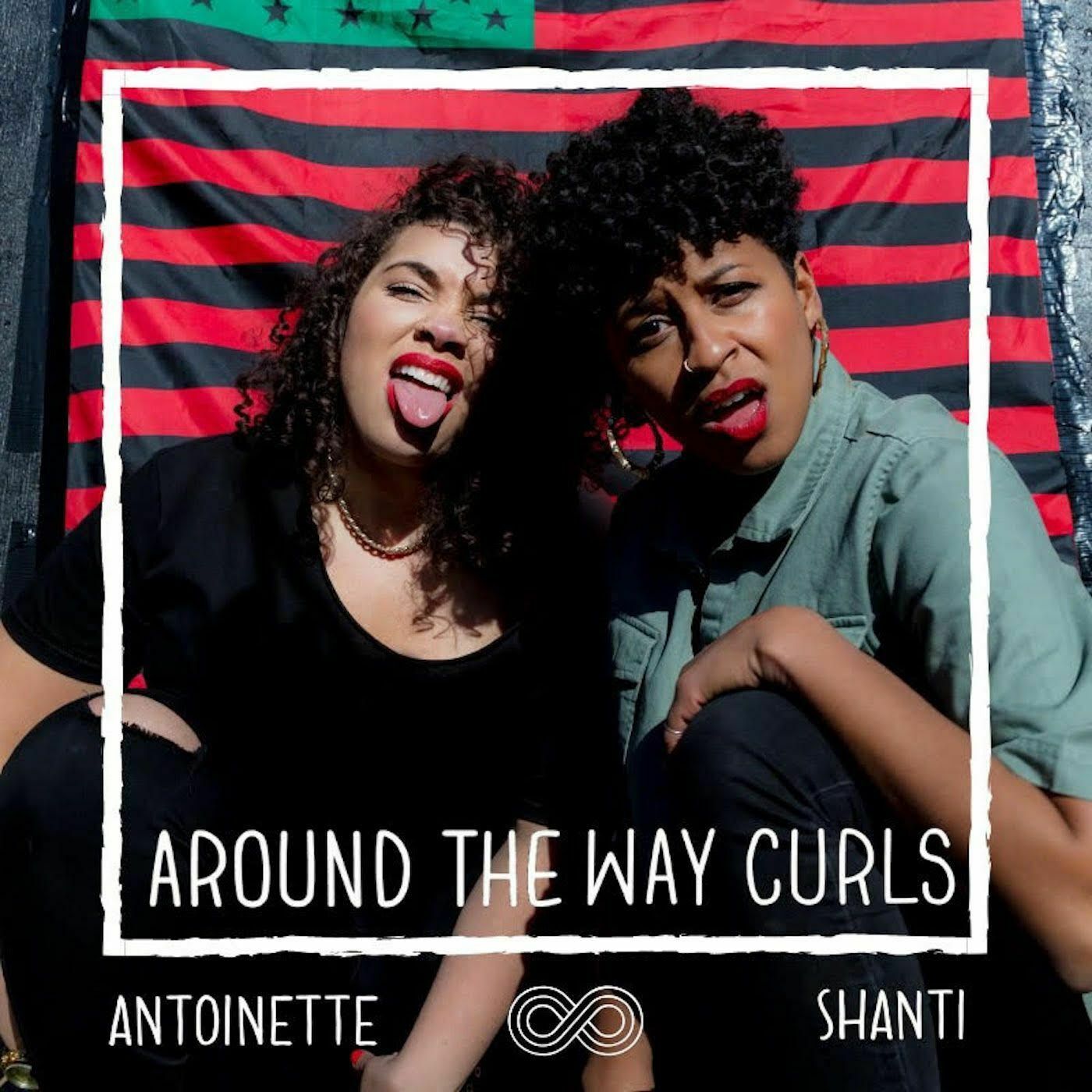
Around The Way Curls
Antoinette Lee & Shanti Mayers
LOVERS by shan
LOVERS by shan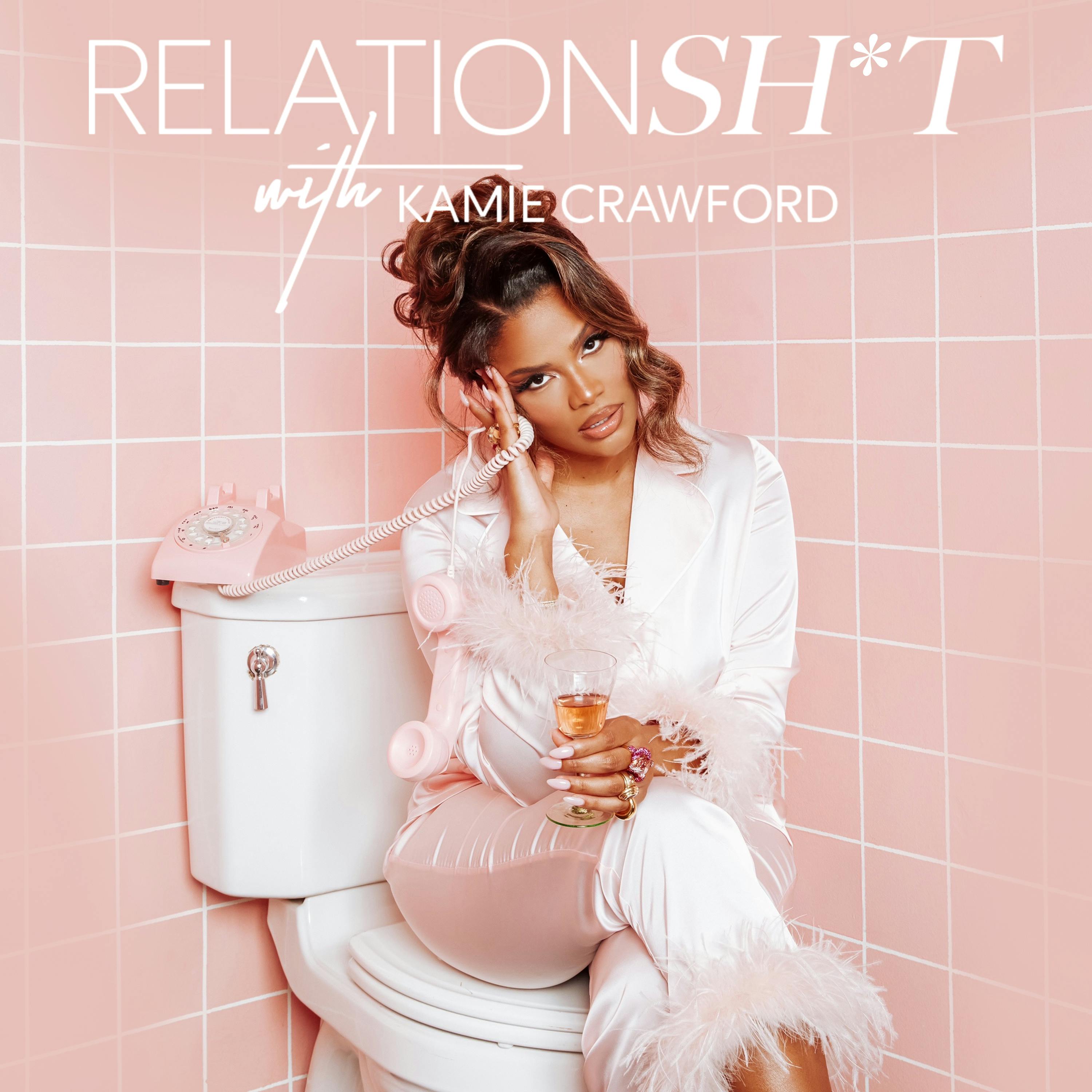
Relationsh*t with Kamie Crawford
Kamie Crawford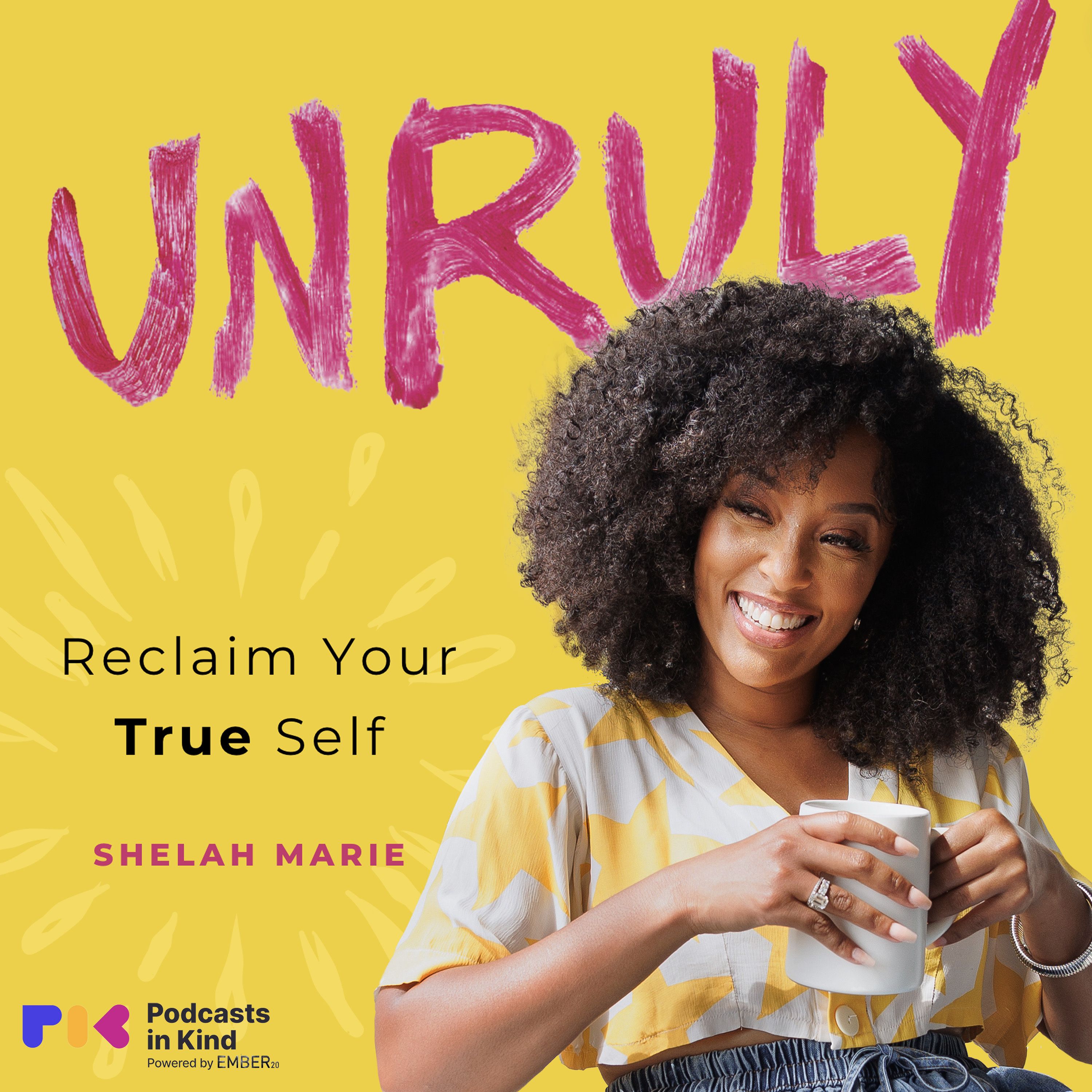
UNRULY WITH SHELAH MARIE
UNRULY WITH SHELAH MARIE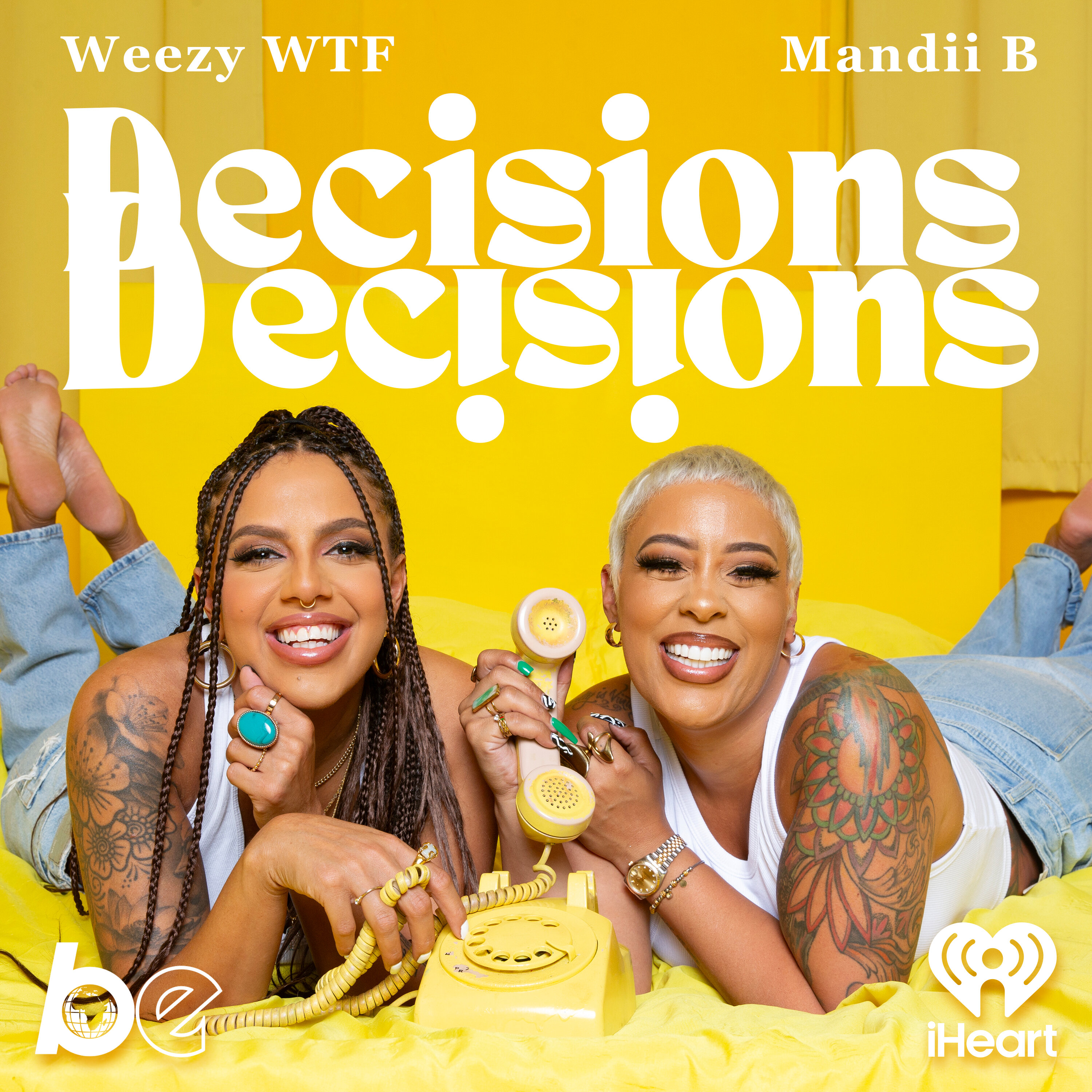
Decisions, Decisions
The Black Effect and iHeartPodcasts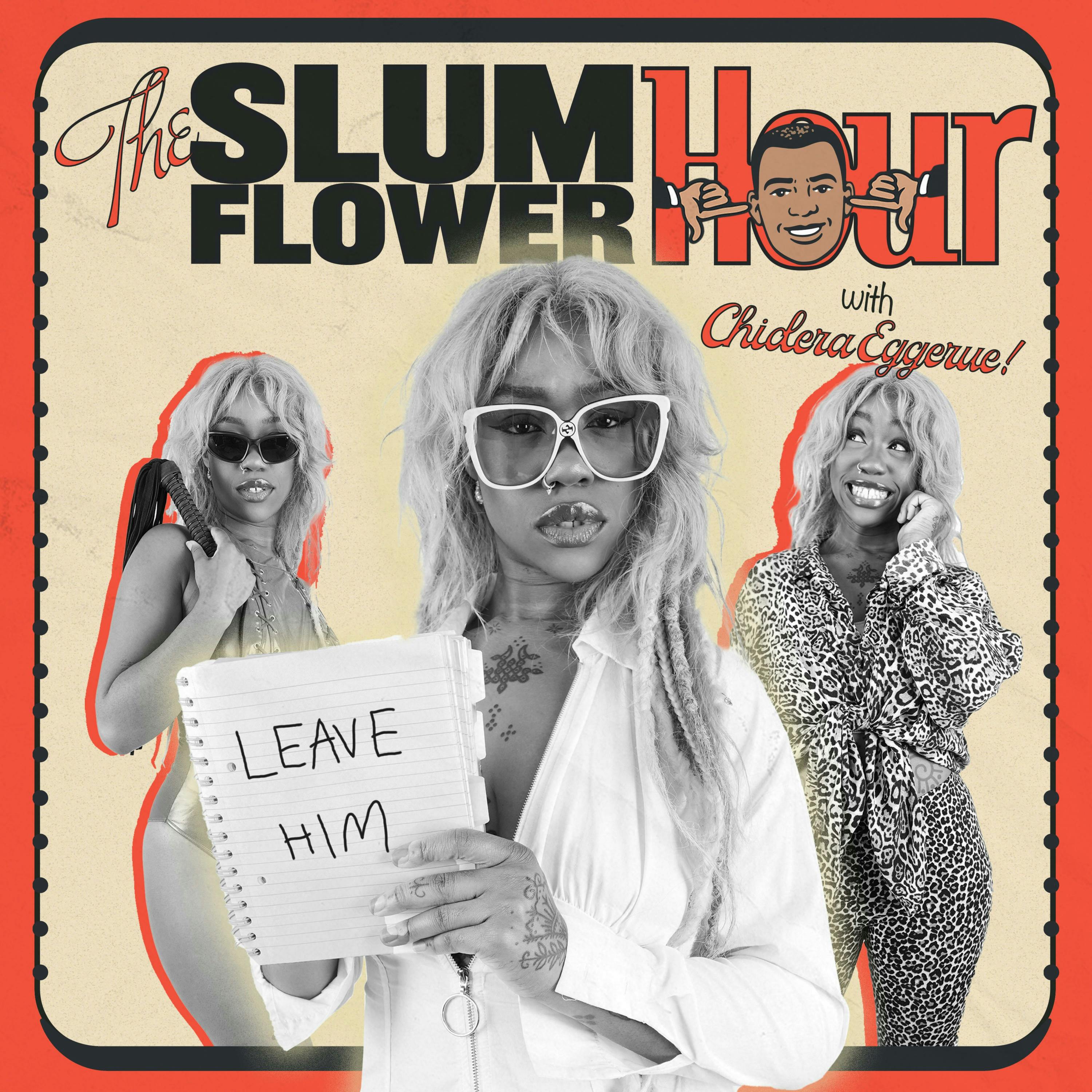
The Slumflower Hour
Chidera Eggerue
Good Moms Bad Choices
The Black Effect and iHeartPodcasts
Slay Girl Slay
Ashley Leggs
She's So Lucky
She's So LuckyUpstream
Upstream
SpeakEZ Black Renaissance Podcast
Qadry Harris, M. Div.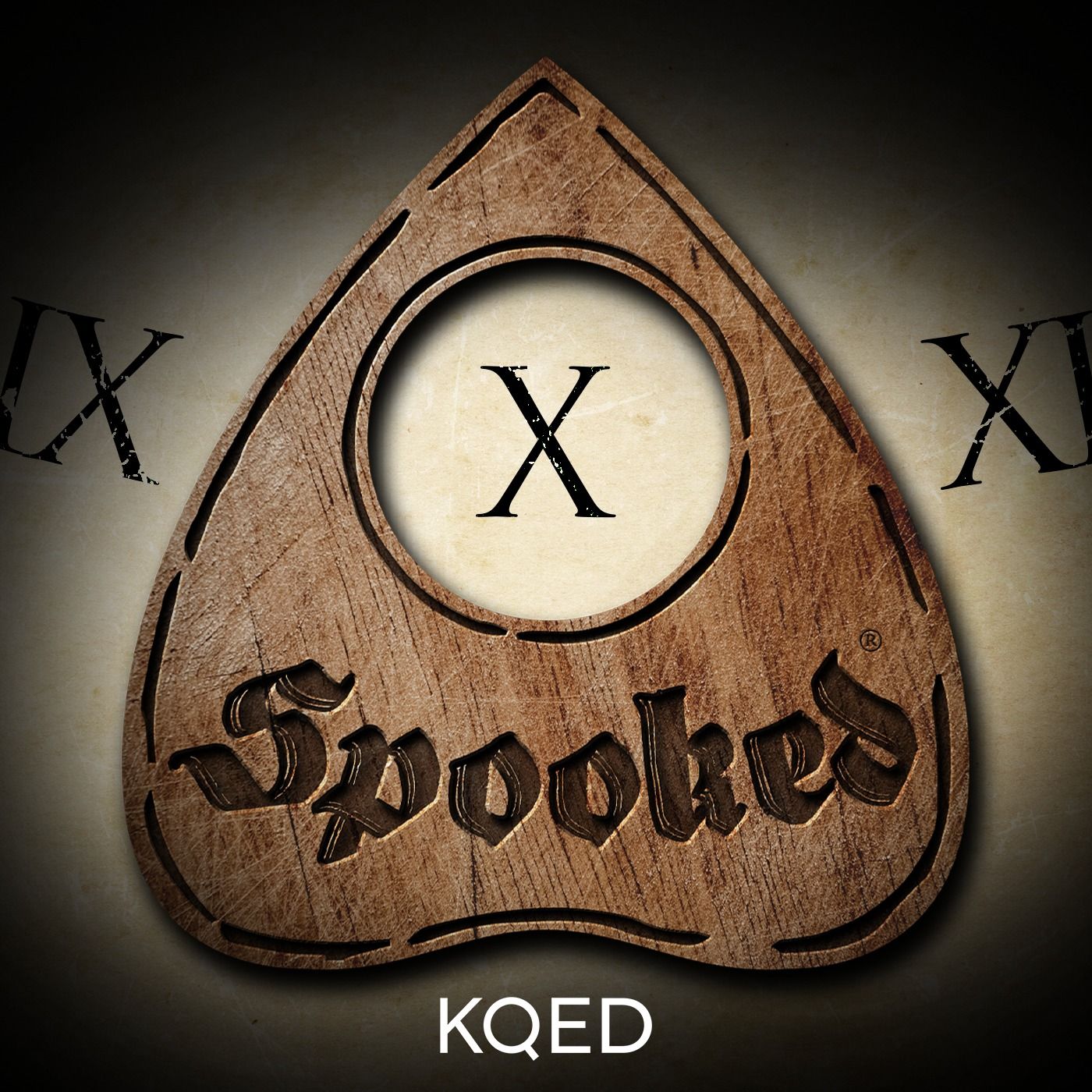
Spooked
KQED and Snap Studios
Bobo's Void
Bobo, Donavon and Mango
Magic in the United States
Magic in the United States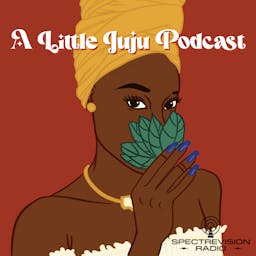
A Little Juju Podcast
SpectreVision Radio
Sensual Faith Podcast with Lyvonne Briggs
Lyvonne Briggs
Our Ancestors Were Messy
Nichole Hill
The Bankrupt Millionaire
Samia Burton
The Love Seat
Lauren Speed-Hamilton and Cameron Hamilton
Dear Franny
Francesca Hogi
Hold For Maintenance
Hold For Maintenance
CultureCon Uncut
Spotify Studios
